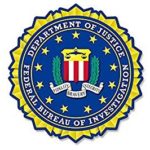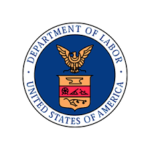Day-By-Day Walk Through US Legal History: August
1 August 1876 ? Colorado is admitted as the 38th state in the US.
2 August 1776 ? Almost all of the 55 members of the Continental Congress gathered in Philadelphia sign a copy of the Declaration of Independence.
3 August 1882 ? Congress passes the first comprehensive immigration law in the US. The Immigration Act of 1882 listed categories of foreigners who were ?undesirable? and should not be permitted to enter the US, and gave the secretary of treasury the power of oversight.
4 August 1961 ? Barack Obama, who was to become the 44th President of the United States, is born in Honolulu, Hawaii.
5 August 1963 ? The United States, the UK and the Soviet Union sign the Partial Nuclear Test Ban Treaty,
6 August 1965 ? President Lyndon Johnson signs into law the Voting Rights Act, putting an end to many of the barriers that had been designed in the South to prevent African Americans from voting. These included literacy, knowledge and character tests that in effect discriminated against African Americans.
7 August 1964 ? The US Congress passes the Gulf of Tonkin Resolution, authorizing President Lyndon Johnson to use force in Southeast Asia despite Congress not having formally declared war.
8 August 1974 ? President Nixon appears on American television and announces his decision to resign from the presidency as a result of the Watergate scandal. He officially stepped down at noon the next day.
9 August 1945 ? The United States B-29 Bockscar drops an atomic bomb on Nagasaki, Japan, immediately killing 35,000 people.
10 August 1863 ? President Abraham Lincoln met with abolitionist Frederick Douglas to discuss equality for African American Union troops.
11 August 1792 ? The Supreme Court delivers its first reported decision in the case of Georgia v Brailsford, with the opinion written by Justice Thomas Johnson.
12 August 1992 ? The U.S., Canada and Mexico announce the conclusion of negotiations for the North American Free Trade Agreement, which was to eliminate trade and investment barriers between the three countries. ?
13 August 1894 ? The U.S Senate ratifies the Chinese Exclusion Treaty, which was designed to exclude Chinese laborers from coming to the U.S to work.
14 August 1935 ? The Social Security Act is signed into law by President Roosevelt, creating a guaranteed pension system for those who retired at the age of 65. It also established a system of social security for the unemployed, dependent children and the disabled.
15 August 1876 ? U.S. Congress passes a ?starve or sell? bill designed to force the Sioux Indian to give up the Black Hills, where gold had been found, or face the end of subsistence appropriations from the government.
16 August 1841 ? President John Tyler vetoed a bill calling for the re-establishment of the Second Bank of the United States. Members of the Whig Party were so angry at this development that they demonstrated in from of the White House in the most violent demonstration in US history.
17 August 1998 ? President Bill Clinton testifies before a grand jury about his relationship with White House intern Monica Lewinsky, becoming the first sitting US President to come before a grand jury investigating him.
18 August 1920 – The 19th Amendment to the Constitution is passed and gives all American women the right to vote.
19 August 1692 ? In Salem, Massachusetts, four men and one woman were put to death. They had been found guilty of witchcraft.
20 August 1964 ? President Lyndon Johnson approves the Economic Opportunity Act of 1964, which provided anti-poverty measures worth almost $1 billion. The aim of the Act was to reduce poverty, expand educational opportunities, increase the safety net for the poor and unemployed, and tend to the health and financial needs of the elderly.
21 August 1959 ? President Dwight Eisenhower signs an executive order making Hawaii the 50th state in the union. ?
22 August 1996 ? A major welfare reform was initiated when President Bill Clinton signed the Personal Responsibility and Work Opportunity Act into law, limiting the duration of welfare to five years for most people, and requiring people to work whilst receiving welfare.
23 August 1970 ? The largest farm worker strike in US history ? the Salad Bowl strike, begins under the leadership of Mexican American union leader Cesar Chavez.
24 August 1894 ? U.S. Congress passes the first law to create graduated income tax. The next year it was declared unconstitutional by the US Supreme Court.
25 August 1921 ? Having never ratified the Versailles Treaty that put an end to the First World War, the U.S. finally signs its own peace treaties with Germany, Austria and Hungary.
26 August 1920 ? Women are given the right to vote as the 19th Amendment to the Constitution comes into effect.
27 August 1908 ? Lyndon B Johnson was born in Stonewall, Texas. He went on to become the 36th President of the United States.
28 August 1963 ? 250,000 people turned out to a civil rights rally in Washington, D.C. where Martin Luther King Jr. gave his famous ?I have a dream? speech.
29 August 1957 ? U.S. Congress passes the Civil Rights Act of 1957, the first civil rights legislation since 1875. It was primarily a voting rights bill, and showed Congress?s support for the decision in Brown v Board of Education (1954), which had resulted in public schools being desegregated.
30 August 1967 ? The first African American Justice of the Supreme Court, Thurgood Marshall, is confirmed.
31 August 1935 ? The U.S. passes the first of its Neutrality Acts, the Neutrality Act of 1935, in an attempt to avoid the growing aggression in turmoil in Europe and Asia. The Act imposed a general embargo on trading in arms and war materials with all parties in a war.






